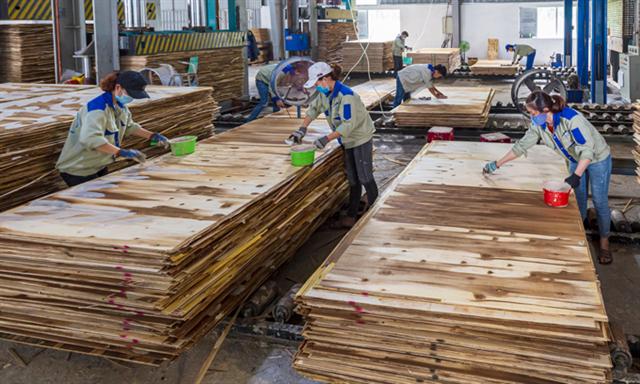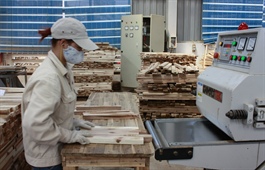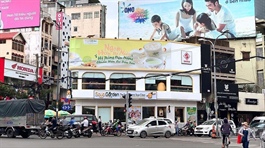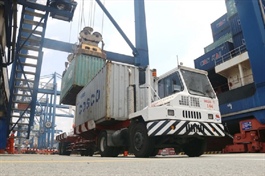Companies diversify to survive Covid-19 storm
Companies diversify to survive Covid-19 storm
Vietnamese companies hit by Covid-19 impacts are branching into new businesses to ensure cash flow and survive the pandemic.
Workers make plywood in the central province of Quang Binh. Photo by Shutterstock/Loner Nguyen.
|
Hanoi-based tourism company AZA Travel is planning to import beer from Europe to Vietnam in the coming months to earn revenues and pay staff salaries.
The company's CEO, Nguyen Tien Dat, said that they will sell the beer mostly online as many customers cannot go to restaurants and bars which have been asked to scale down operations or shut down.
The company is taking this unusual step as it plunges into a state of uncertainty yet again in the wake of the latest Covid-19 outbreaks in many localities.
It had planned to launch new services this summer, seeking to take advantage of an expected recovery in travel demand, but with 713 domestic cases recorded since April 27, the new ideas are unlikely to be implemented, Dat said.
Plans to recruit more employees have also been suspended, he added.
"Selling one service to one customer is challenging enough, now we have to deal with thousands of cancellation requests. It is very tiring."
The CEO of a furniture company in Hanoi, who wanted to be mentioned as Hung, said his company has been distributing agriculture produce and other food items to pump up revenues.
"If we only sell wood products, we can survive for another six months at most," he said.
The new business requires Hung to reassign some of his employees to a brand new business.
"The profits are not high, but at least it is something to do while we wait for the pandemic to be over."
The fourth wave of Covid-19 in Vietnam is considered to carry high risks as many contagion sources have not been identified and 26 localities as of Friday have reported cases.
The new outbreaks have created the challenge of a rise in material prices.
Nguyen Chanh Phuong, deputy chairman of the Handicraft and Wood Industry Association of Ho Chi Minh City (HAWA) said that wood material prices have risen 15-20 percent this year.
"Rising manufacturing costs have reduced the profit margin," he said.
Although many companies have adopted the diversification strategy to boost revenues, not all of them are successful.
The CEO of a wood company in Ho Chi Minh City, who wanted to be mentioned as Hoang, had joined some friends to invest VND6 billion ($260,000) in a restaurant last year, but the pandemic has delayed the opening indefinitely.
With meager revenues, he still has to pay nearly 40 staff their monthly salaries.
If the situation persists, the restaurant might have to be closed, he said.
























